Hummingbird Plants
You can’t beat my neighbor’s aloe for the longest blooming plant around. It hasn’t taken a break since early last spring, a coral beacon for insects and migratory hummingbirds heading in or heading back out.
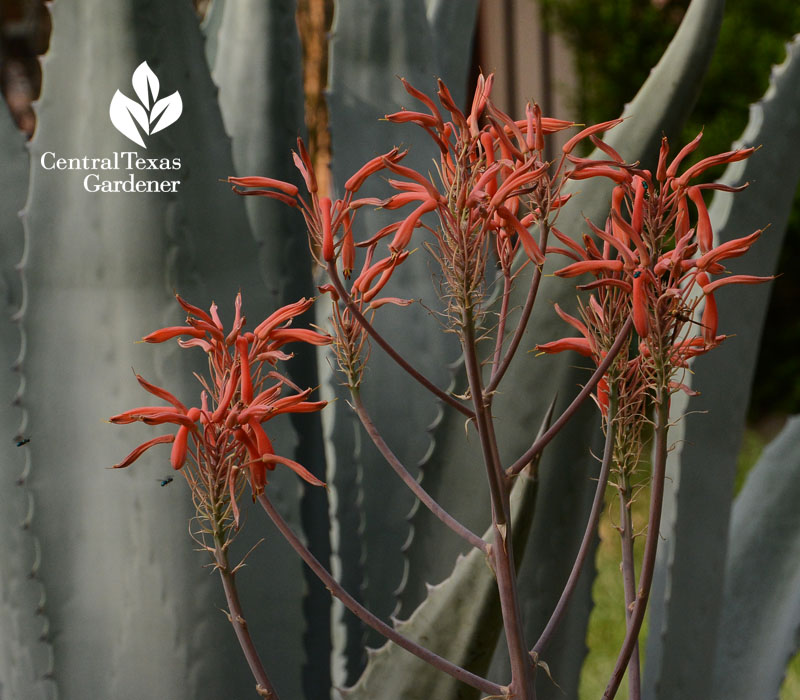
That’s a great thing about native rock rose (Pavonia lasiopetala), too. After a sensational spring cycle, it starts all over again in fall. If we deadhead in late spring and rain favors us a bit, we’ll even get summer blooms.

To get your garden on the hummingbird radar, this week Andrea DeLong-Amaya from the Lady Bird Johnson Wildflower Center spotlights a few garden groceries. Watch now!
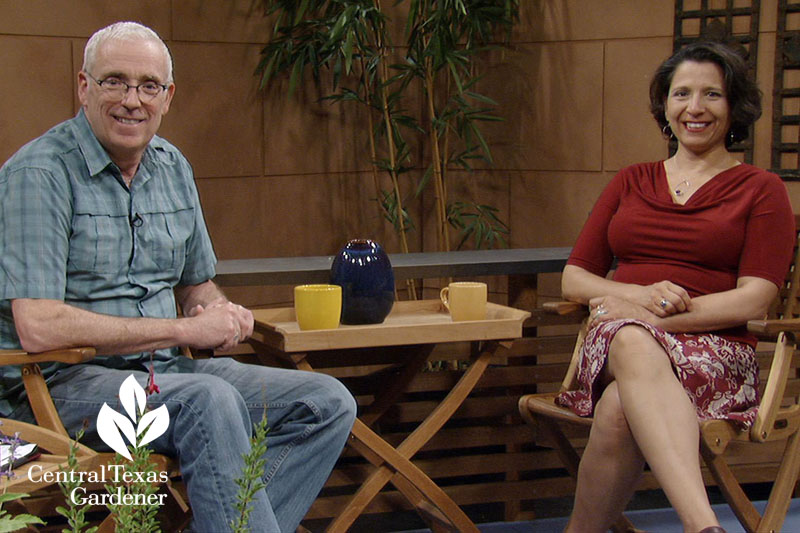
Providing on-going food is essential, not just for hummingbirds, but for everyone on the wing.

Salvias are tops on the list. Salvia farinacea blooms spring and fall.

Salvia farinacea ‘Henry Duelberg’ is a recent hybrid. These herbaceous plants die to the ground in winter but return as rosettes in the spring.
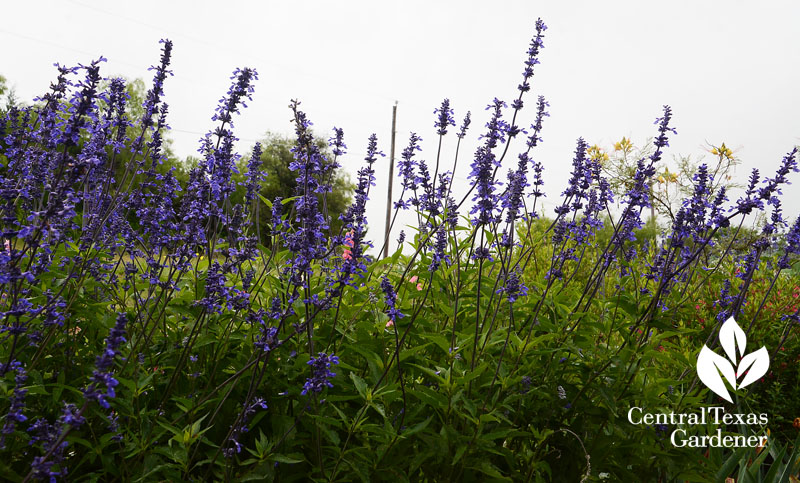
Salvia greggii is an evergreen that benefits from hard shearing in January/February and light pruning in May and late August.
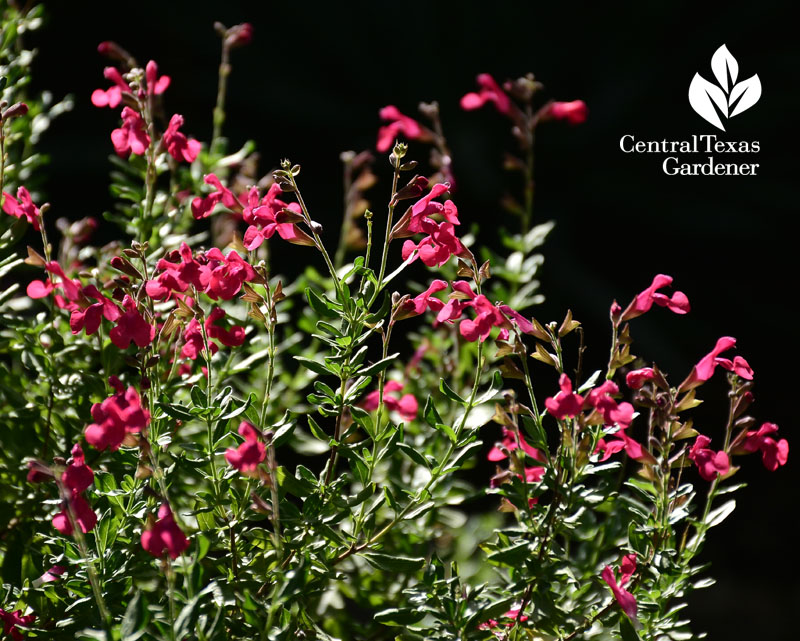
When Salvia farinacea and greggi rest in summer, annual warm weather S. coccinea fills the void until the first hard frost.
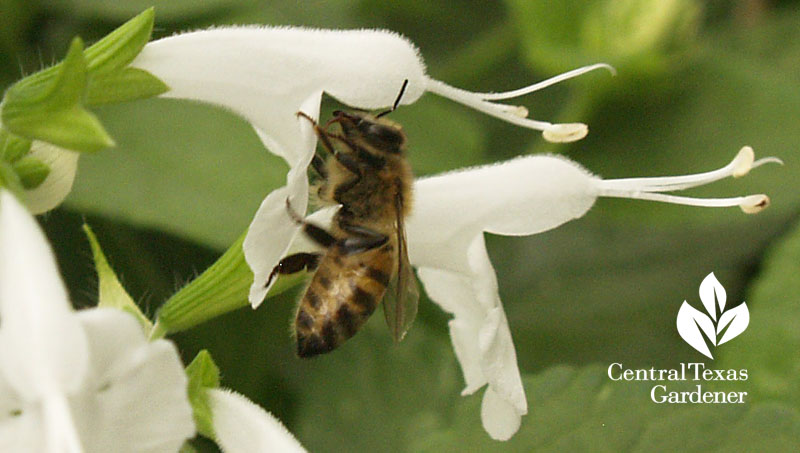
Super drought tough Turk’s cap adapts to part sun and dappled shade, blooming spring through frost.
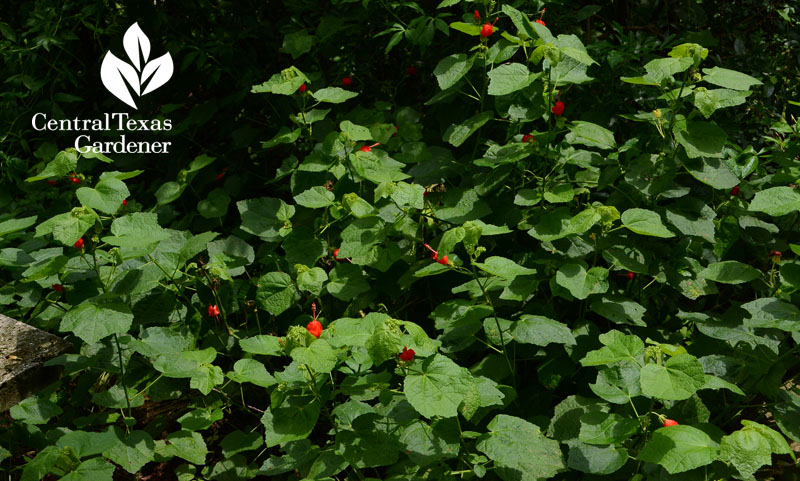
Although small-sized, deep red Heartleaf hibiscus (Hibiscus martianus) flags down hummingbirds on the hunt.

Summer through fall, shrubby perennial flame acanthus doesn’t need much water to pump out flaming flowers.

Evergreen penstemon rosettes shoot up panicles of tiny tubular blooms in spring. Gulf penstemon (P. tenuis) is one of many.
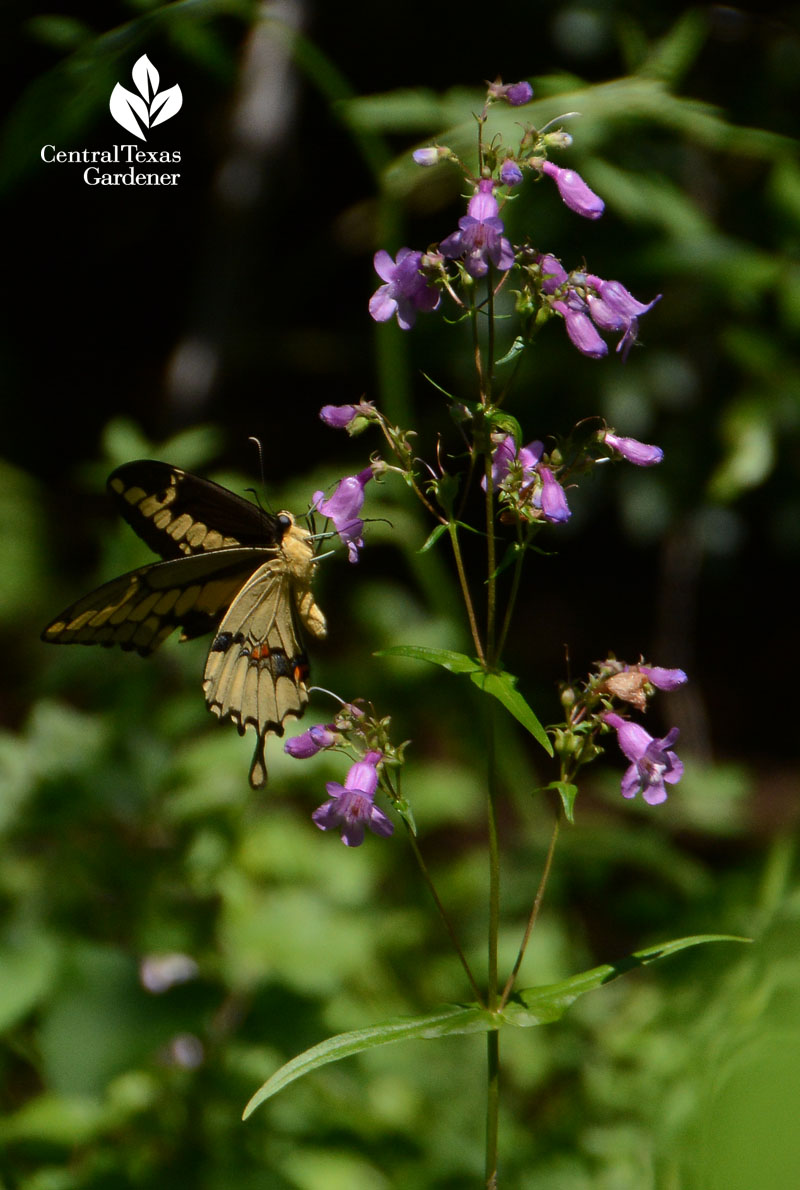
To cover a fence or trellis, spring and sometimes fall-blooming native crossvine (Bignonia capreolata), including hybrid ‘Tangerine Dream’, shouts for attention.
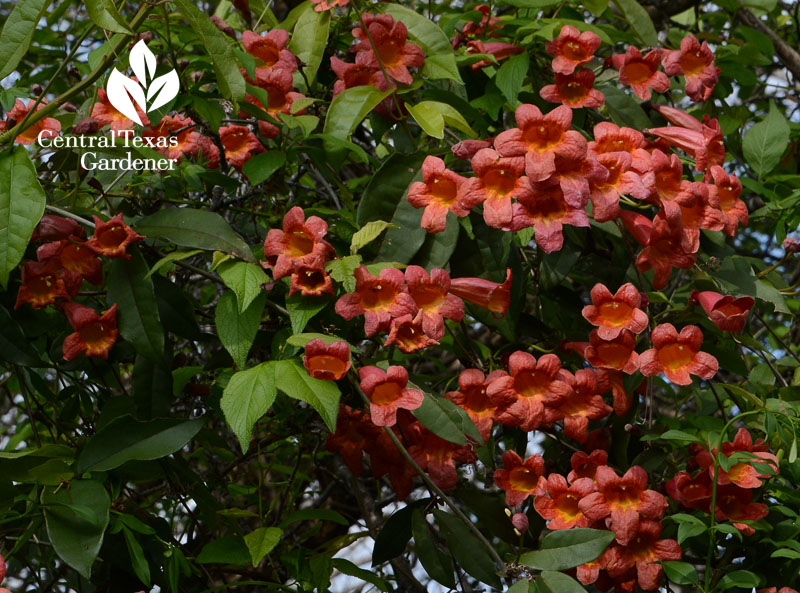
In ditches, wet lands or other hydrated soil, Aquatic milkweed (Asclepias perennis) provides nectar to hummingbirds, bees, and butterflies.
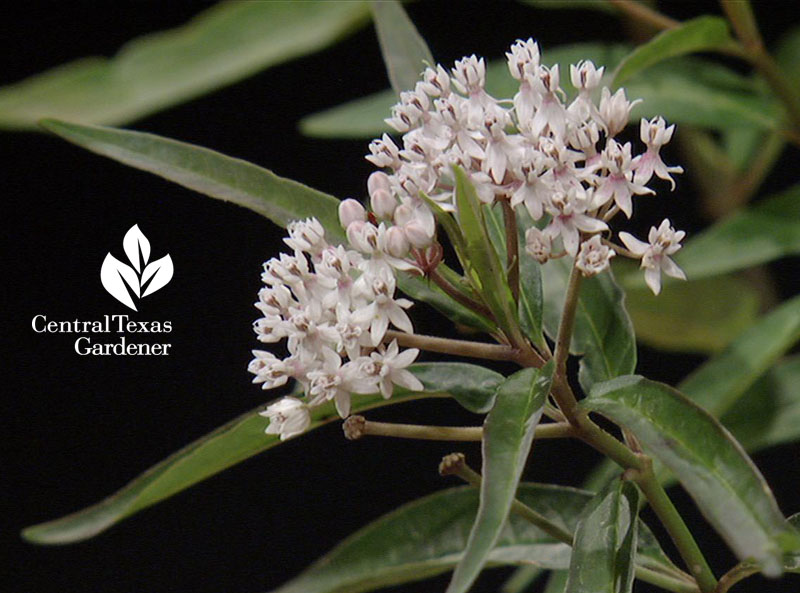
Watch Andrea DeLong-Amaya’s interview to learn more!
categories:
